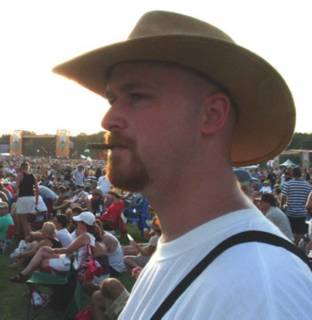I own an American flag. It’s very special to me, and I haven’t had it long. It’s the flag that was given to my aunt when my grandfather, her and my father’s father, died. He was a World War I veteran who fought in
When I was growing up, I was in the Boy Scouts. In fact, I came within a hair’s breadth of making Eagle Scout before I turned 18, the cutoff for membership. One of the things we learned in Boy Scouts was the proper way to fold a flag. The first time I remember learning to do this was for an uncommon occasion. A flag burning.
There’s a VFW in my hometown in
For more than a decade now, there’s been floating around Congress an amendment to the Constitution to prohibit flag burning (and not of the kind described above). The states had laws against desecrating the flag, but the Supreme Court ruled them unconstitutional in 1989 and again in 1990. After that, the states asked Congress for an amendment to stand up to the Supreme Court, but it has never passed.
Flags are symbols, pieces of cloth sewn in a particular way, that people assign meaning to. I can’t imagine a circumstance in which I would agree that the meaning of our American flag was such that it deserved to be destroyed. But I also can’t imagine why a country that celebrates freedom would approve of the government punishing someone for stating their beliefs. Amending the Constitution in such a way would be to make it contradict itself, in terms of the First Amendment guarantee of “freedom of speech”. As the famous quote from French philosopher Voltaire goes, “I disapprove of what you say, but I will defend to the death your right to say it.”
It may be unpleasant to realize when our government has done something wrong. But in the same way that it is appropriate to be proud of our achievements, it is also appropriate to be ashamed of our lapses, such as the Tuskegee experiments, the Japanese internment camps of World War II, and of course slavery and discrimination that persists in some areas to this day. Sometimes it takes time for popular sentiment to come around when such things are exposed, but when the freedom to criticize is curtailed, it becomes harder to discover these mistakes for what they are in the first place. That is why it is so important to keep this right undiluted and clear, to ensure that light can always reach those dark places.

No comments:
Post a Comment